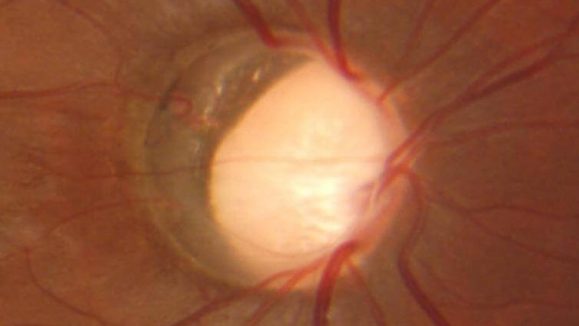Earlier this millennium, patients suffering from wet AMD ideally were not losing more lines of vision after treatment.
Now, they are not only gaining double-digit lines, they are also doing it with far less hassle than ever before.
A new phase IIIb/IV study called PLANET shows Eylea (aflibercept, Bayer) leads to a 10.7 letter gain in visual acuity as monotherapy for sufferers of polypoidal choroidal vasculopathy (PCV), a subgroup of wet AMD. That compares to 10.8 letters in gain with Eylea used in combination with active rescue PDT at 52 weeks, which was not a statistically significant difference. Details on the study were presented at a Bayer press conference at APVRS Bangkok.
“Eylea monotherapy showed similar efficacy to Eylea plus rescue PDT therapy, signifying that Eylea monotherapy can be established as a first line treatment option for patients with visual impairment due to PCV,” said Prof. Won Ki Lee, M.D., Ph.D., Chief of Vitreo-retinal division, Department of Ophthalmology, Soul St. Mary’s Hospital, The Catholic University of Korea.
Further, no active polyps were detectable in 81.7% of patients on Eylea monotherapy, versus 88.9% in the Eylea combined with PDT group. Polyp regression in entirety occurred in 38.9% of monotherapy patients and 44.8% of combined therapy patients, which again was not a statistically significant difference.
This is especially exciting news for Asia-Pacific, where PCV occurs more frequently than in Caucasian populations.
“These findings suggest that these patients will be able to benefit from Eylea monotherapy without requiring the additional time and associated side effects of PDT treatment,” Prof. Lee said.
The PLANET study appears to be robust, with 333 men and women 50 years or older participating in 62 study sites mainly in the region.
In context, these study results also are compelling.
In a study called EVEREST II, Lucentis (ranibizumab, Novartis) led to a 5.1 line gain in visual acuity at 12 months, versus an 8.3 line gain when combined with PDT. While PLANET is clearly a different study, notably Eylea led to a double-digit line gain even as monotherapy, and demonstrated enough evidence to not require PDT for better performance.
Take Away Points from PLANET Study
Prof. Gemmy Cheung, MBBS, FRCOphth, senior consultant ophthalmologist, Singapore National Eye Centre, Singapore, noted the following key benefits of Eylea monotherapy:
• It achieves significant BCVA gains
• It achieves a dry retina in a significant proportion of patients
• It achieves polyp regression in a significant proportion of patients
• It reduces the need for – and risks associated with – PDT.
Editor’s Note: This article first appeared at the APVRS Show Daily Issue 3, the official conference news of APVRS 2016 (Bangkok, Thailand) published by Media MICE Pte Ltd: https://issuu.com/mediamice/docs/apvrs_showdaily-day3-issuu/3



